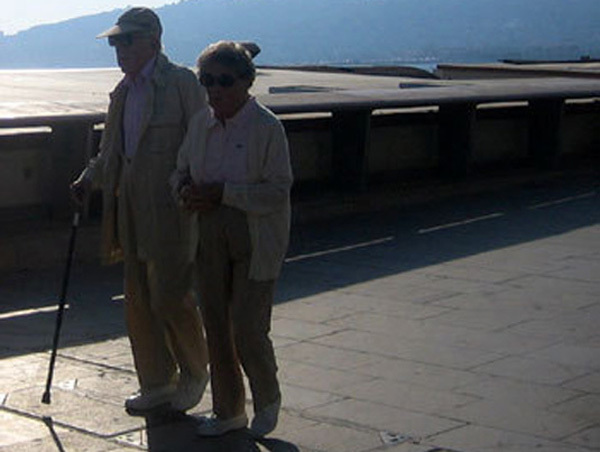
Explained by the 5 tips available in the Practical Sheets and by inspiring coded projects, the guide provides future project leaders, not initiated, step-by-step support.
– Involve people living with Alzheimer’s disease
Andy Hyde, founder of Go Upstream, has developed a project to further integrate transportation to improve the mobility of people living with dementia. It testifies to the content and richness of the discussion workshops with sick people and transport agents, enabling the project to be co-structured.
– Benefit from the skill of the key player
Palais de Tokyo France has partnered with Alzheimer’s to develop inclusive tours and art therapy workshops dedicated to sick people and their families. It was made possible by the association’s expertise to take a step forward in the legitimacy and capacity of the cultural organization to welcome people living with Alzheimer’s disease.
– Get support in terms of finance or expertise
The founder of Maison des Sages (Conflict between Sick People in Vivalence) looks back on the origins of this project and the difficulty in finding the help needed to make it a reality. The house, which opened in October 2019, now benefits from numerous supports for social security groups, private partnerships, corporate and private sponsorships.
– Knowing how to communicate in an appropriate manner
Feedback on the experience of the Levellois Sporting Club, which offers inclusive table tennis lessons. Thanks to a well thought out communication plan and extensive media coverage, the project has benefited over 50 sick people and enhanced the visibility of the club.
– Evaluate to measure the effectiveness of the project
The Italian Alzheimer’s Bar Association wants to change the scale and integrate the supermarket network “on space”. In view of the success of the “pilot” site, the model was evaluated and distributed to thirteen stores in the network.
The project of this guide was born in September 2019 at the first regional meeting of the Alzheimer’s Collective in Nice, which led to many observations by the members of the group:
1. Comprehensive programs for the sick and their caregivers are prevalent in France,
2. They are often worn by people who have personally experienced Alzheimer’s disease or by people who are sick or because one of their parents is ill.
3. They are most often related to the government, affiliated or philanthropic sectors and rarely to the “commercial” sector,
4. For non-Alzheimer’s disease or disability participants in everyday life, there is a dearth of practical tools to help them “enter” this problem in a simple way and bring it about. Reply,
5. Building a holistic society is one of the challenging conditions of cognitive aging. The project will inevitably be long-term, but it will only be successful if all the daily actors are involved in it.
The collective is based on a working group consisting of organizational players and project leaders and led by the Modric Alzheimer’s Foundation. Not all project leaders who testify are medico-social or healthcare professionals, which makes their testimony very strong.
« We all have a role to play in improving the daily lives of people living with Alzheimer’s disease. Our goal is to tell professionals who do not fall out of health or medico-social that they can contribute to this social problem and above all they are legitimate to do so. Segoline Charney, project manager who coordinated the production of the Guide, concluded.
*The Maderic Alzheimer’s Foundation was launched in 2019 and includes the assembly of Agirk-Arco, France, France, Alzheimer’s, Mutual Franchise, SFGG and UNAF





More Stories
Healing Streams Live Healing Services with Pastor Chris: Miracles Await this March 14th – 16th, 2025!
Essential Care for Hermann’s Tortoise: A Guide to Thriving Pets
Nail Decisions: Which is Better for You, Acrylic or Gel?